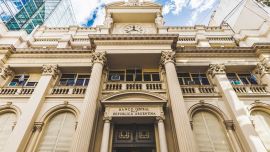The crisis in Venezuela is showing no signs of improvement, with President Nicolás Maduro last week beginning a new term in office. The Times spoke with Dr Elena Block, an academic at the University of Queensland, who specialises in the communications and cultural strategies of the chavista movement, about how the migrant crisis is shaping Venezuelan politics and society.
How has the Maduro government framed the exodus of Venezuelan migrants in terms of its official discourse?
Maduro has tried to minimise and even deny the migration tragedy that is affecting Venezuela even exists. He not only denies the crisis and rejects humanitarian help but keeps blaming the “imperio,” capitalism, or simply the United States.
But Maduro has double standards and a double discourse: he has glorified the caravan of Central American migrants walking to the US and has asked [US President] Trump to open the doors of the United States to them. So, capitalism is good for some things and evil for others.
Maduro has framed the humanitarian crisis and the migration as “fake news.” My own research tells me that the populist discourse of the right and left is very similar. Like the right-wing Trump, left-wing populist chavistaMaduro tends to frame any bad news about his government or policies as “fake news” from the evil news media.
This is not a trivial matter that I am currently researching. The words used by abusive populists – no matter their ideology or cultural background – matter. Divisive, abusive, confrontational words can cause immense harm in a society, disrupt relationships and democracy itself, as the Venezuelan case demonstrates.
Has Maduro used migrants as a scapegoat, whereby migrants by contrast could be useful in fortifying his image and a sense of nationalism among his supporters?
He is doing a different thing. He is providing a populist patronage kind of solution, typical of nationalistic chavismo: Maduro’s government has created the plan “Vuelta a la Patria,” a plan inviting repentant migrants, who have not found jobs or welcoming lands, to return to Venezuela. The government facilitates free flights and monetary support to return.
But just over 9,000 people [9,360 according to news media reports] have used the plan, which is around 0.3 percent of the three million that have left Venezuela since 2015 (UN data).
However, Maduro and his chavista government continue to be in denial and present the results of Vuelta a la Patria as a success. Denial or blaming it all on “fake news” will not stop the migration crisis or the overall Venezuelan political, economic and social tragedy.
The number of Venezuelan migrants or refugees could grow to four million in 2021, also according to the United Nations, which is staggering compared with the six million that have fled Syria.
What are some of the broader implications of the migrant crisis on Venezuelan society?
Venezuela is becoming a country of lonely and struggling parents and grandparents, who prefer to do whatever it takes to send their children away to have a life, a job, the right to dream and have a future, no matter if they go walking [across] the Andes, or by bus, or in perilous boats to neighbouring islands.
Venezuela today is a divided and nostalgic country being transported in thousands of travel bags.
It is a hard and sad reality.





















Comments